10 Things I’ve Learned from the Big Mouth Kids more than they’ve Learned from Me
10 Things I’ve Learned from the Big Mouth Kids more than they’ve Learned from Me
By Ryan May-Miller
Branch Manager, Big Mouth Theatre, Eastleigh
As I come to the end of my chapter with Big Mouth, I feel evermore reflective on my time here. As someone who likes to tell stories, I look for lessons learned, conflicts resolved and character growth. I would firstly like to say how grateful I am to this company and all the children I taught along the way. When I began university, I had already secured a job. I was able to move from a branch in the business I worked out during college to the branch in Southampton, a short walk from my new accommodation. In a time imbued with stress and change, moving out for the first time, moving to a new city and living with people placed together by an algorithm, having the security, financial as well as personal, of a job waiting for me filled me with confidence. Confidence I would soon find out to be misplaced as I was made redundant when the branch closed three months later. Through no fault of my own, I might add.
Having only a vague idea of what I wanted to do next, knowing whatever it was would have to be done whilst studying, I looked online for theatre jobs near me. And after adjusting my search upon remembering theatre means something very different in a Hospital, I stumbled across a listing for an assistant coach, teaching children drama on Saturday mornings. In the intervening years, this company has allowed me to pay my rent whilst doing a job that is engaging, creatively fulfilling, relevant to my interests and the career I want to pursue all while being incredible fun. Something that I understand is so rare in the ‘real world’, so potentially setting me up with unrealistic expectations as a young man but oh well, I wouldn’t change a thing. And Big Mouth is rare. Having gone through half a dozen drama groups, after school clubs, weekend clubs, workshops and exams, I would have loved to find something like Big Mouth when I was younger. Somewhere that gives the creative freedom to the children, re-framing the drama workshop formula from ‘we’re doing this show, here the scripts’ to ‘we’re onstage in eighteen weeks... any ideas?’, in a world that sometimes feels creatively stale, with remakes and sequels dominating cinemas, giving children the chance to bring their imagination to life onstage is something that every child should have access to.
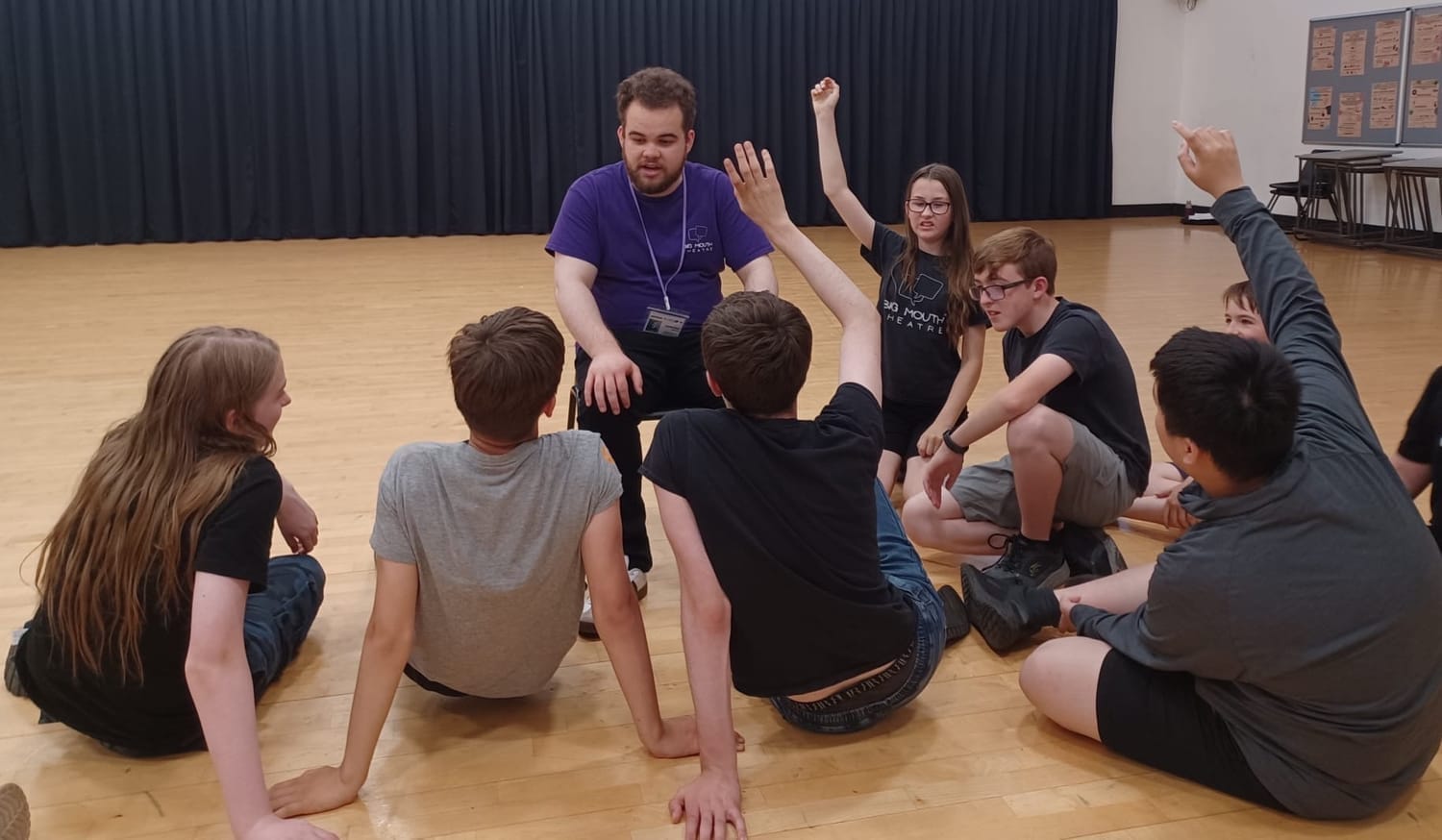
It is no secret that children can surprise you, and I have compiled a list of ten things I have learned from the children at Big Mouth that I would like to share:
1: You’ll never stick to the plan you have.
Similar to how my initial plans of university employment crumbled before my eyes, plans have to change. Us coaches are provided with a session plan for every week of the programme, that is clearly laid out, created through a decade of trial and error with hundreds of children in order to create the show on time. I could not tell you the last time I followed one of these session plans exactly, in the same order activities are present and to the same time frame. The sessions have to change constantly, week to week you face challenges and changes. Perhaps one week some children are on holiday, so you can no longer do the scene they are in, for an example that happens quite frequently. All children are different, all groups of children are different, and different groups of children act differently in different weeks. I want to be clear that I don’t follow all instructions because I’m bad at my job, at least I don’t think I am. When given these sessions, we are told that these are only guides because there is no way to predict how children will respond to certain activities. And we are also facing different age ranges, it is very rare that an activity fit for six-year-olds will work in the same way as it will with fourteen-year-olds. My point is, no matter how carefully you prepare, something will have to change. And that is okay, that’s good in fact. Tailor the sessions to the children in the room, so they can get the most out of it.
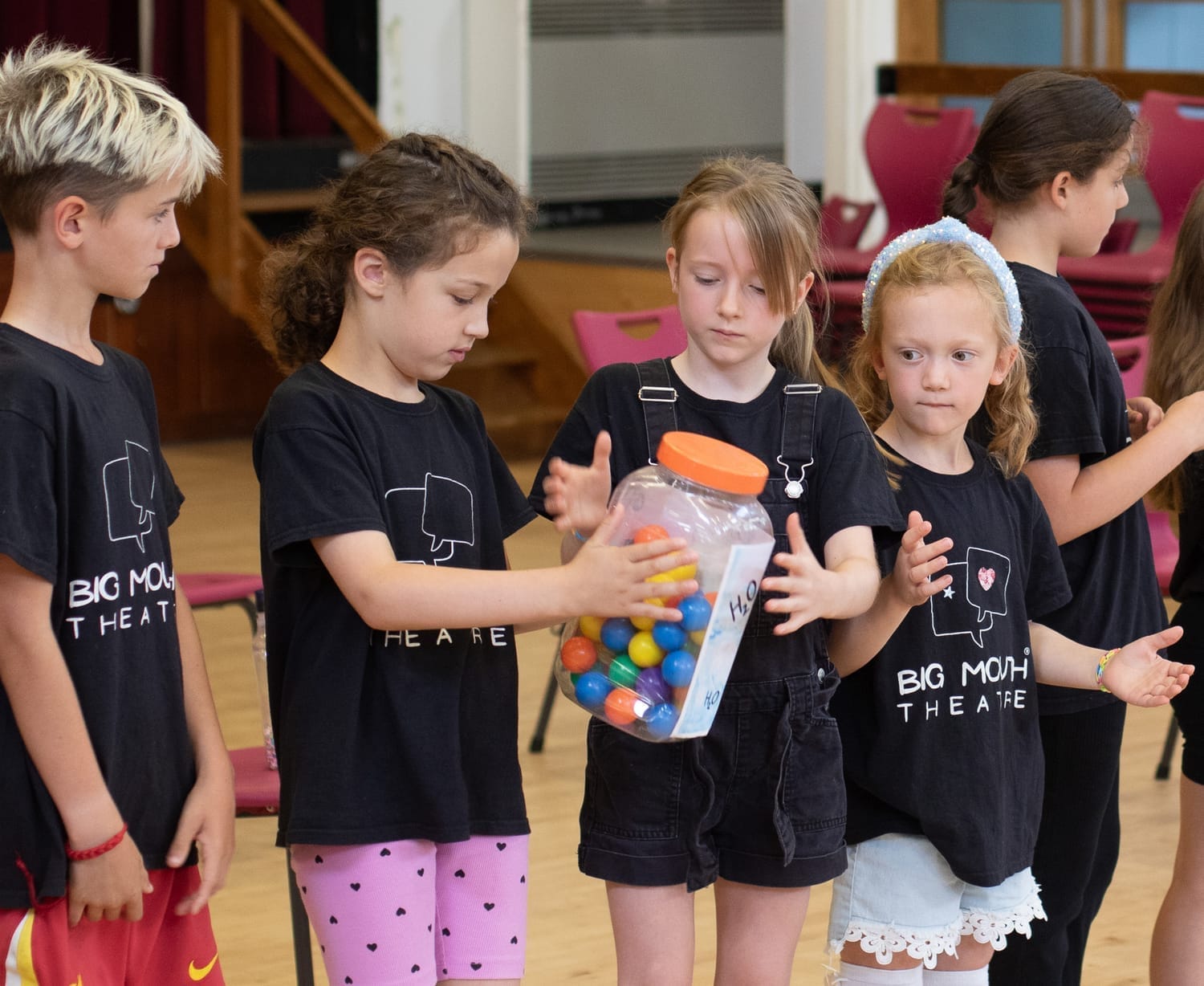
2. They understand far more than they are given credit for.
I have studied drama for as long as I can remember. Through GCSEs and A-levels, I have been taught about different styles, genres and practitioners. There are so many ways to create Art, and theatre is an artistic endeavour that takes large groups of people on a journey at the same time. There is immense power in this. Now you may be thinking, this is a bit much for a children’s drama club, but that’s the lesson I’ve learned, it’s not. Concepts such as multi-rolling, characterisation, physical theatre and motivation have all been introduced, interpreted, understood and utilised by these children, in ways that surpassed what I have intended when introducing them. I knew when I became head coach that I did not want to play it safe, using established characters and stories. I wanted to do something different and the children wanted to do it too. From criminals and supervillains, to gods and sea creatures, the children created something new, something unexpected every time because I believed they could and they proved me right. Don’t shy away from something because it seems too complex, or difficult. Talk to them about it, see what they think and what they can come up with. They will always surprise you.
3. Don’t talk down to children.
Following on from the previous lesson, I want to take a moment to talk about respect. Respect is one of the core principles of Big Mouth, respect others' ideas, feelings, contributions and space. This means respect the coaches, by listening when they are speaking, and respect others when they are contributing. Now all of this is just basic manners, but what is important to remember is respecting people’s creativity, and their ability to grasp what you are saying. I always hated as a child when adults talked down to me as if I didn’t know something. In many cases I obviously didn’t know something, but that is the entire concept of learning, finding things out and it is not helpful if someone acts smug that they know something without sharing the knowledge. I have always pushed against the idea that ‘oh it doesn't matter, it doesn’t need to be clever or well thought out because it’s for children’. Thinking children can’t understand something if it is not spoon fed to them in the simplest, demeaning way possible is very dangerous and really, really annoying for the child. People just end up sounding like Danny Devito in the 1996 Matilda film, “I'm smart, you're dumb. I'm big, you're little. I'm right, you're wrong and there's nothing you can do about it!” It's not helpful and can affect a child’s confidence. That’s why it's important to talk to children on their level, listen to them and don’t patronise them. Many people don’t realise they are doing it, but think about what you say before you say it, because they will smell insincerity from a mile off and won’t let you live it down.
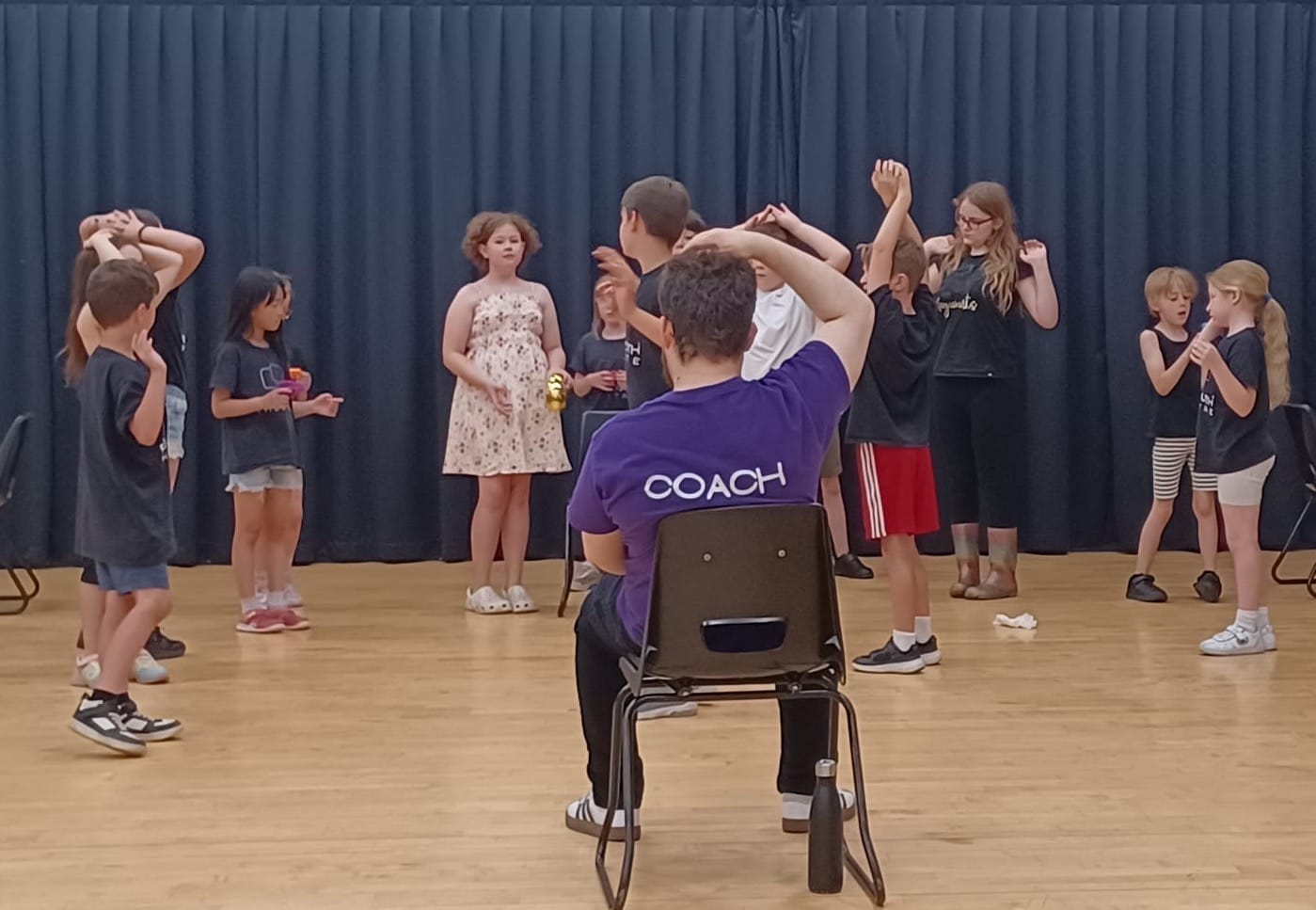
4. If you give them the space for creativity, they will be creative.
This lesson is about trust. As I said in the introduction to this piece, Big Mouth is rare among drama groups by giving the creative freedom to the children, letting them create the show and the characters. It is far too easy to assume that they will go off the rails, and therefore put in place rigid structures to their creative process. Take lego. Originally lego was a collection of colourful bricks of different shapes and sizes that allowed you to create whatever you wanted. This has since shifted to be more focused on specific sets with instructions to create one defined product. Both are good, both have merits and both have problems. If you have infinite possibilities, the sheer weight of them can become overwhelming and then nothing gets done. But if there is no space for creativity, it’s hard to feel passionate and pride over a project that realistically isn’t yours. So while a middle ground is good, I would say, from all Big Mouth Shows I’ve seen come to life, air on the side of creativity. Play out their ideas, try not to say no too much. Even in a situation where their ideas go against the budget we’re working with, the space we have and the laws of physics, don’t outright dismiss it but see where it leads, see what it inspires in others. Trust their creativity, trust that their ideas can be combined into something that they can be proud of and take ownership of, it will be much more fulfilling to them and they will get so much more out of the experience.
5. Passion comes before discipline, and this is the right way round.
When you get into the rehearsal process, and they have created a show that they can be proud of, the assumption might be that this pride will turn into commitment, as the children spend every second of our weekly sessions to make the best show they possibly can. This however does not happen on the whole. They are, hopefully, passionate about the show and drama in general, because of the stake they have in creating it. They are not just regurgitating someone else's work that they have been told is a masterpiece that they don’t understand, instead they are breathing life into their ideas. Now it is important to remember that Big Mouth, like any show, requires discipline. Children need to learn their lines, they need to bring their scripts and wear the right uniform and arrive on time. These are really simple things that are required to create the show, without these we cannot be creative and cannot make a show that they can be proud of. However for some, this discipline comes later in the term. But if you are creating something they feel passionate about, they are more inclined to put in the effort, the time and frankly are more likely to care. I will always prefer a passionate group of actors who can learn to be disciplined, than a disciplined group of actors because it is very, very difficult to teach passion.
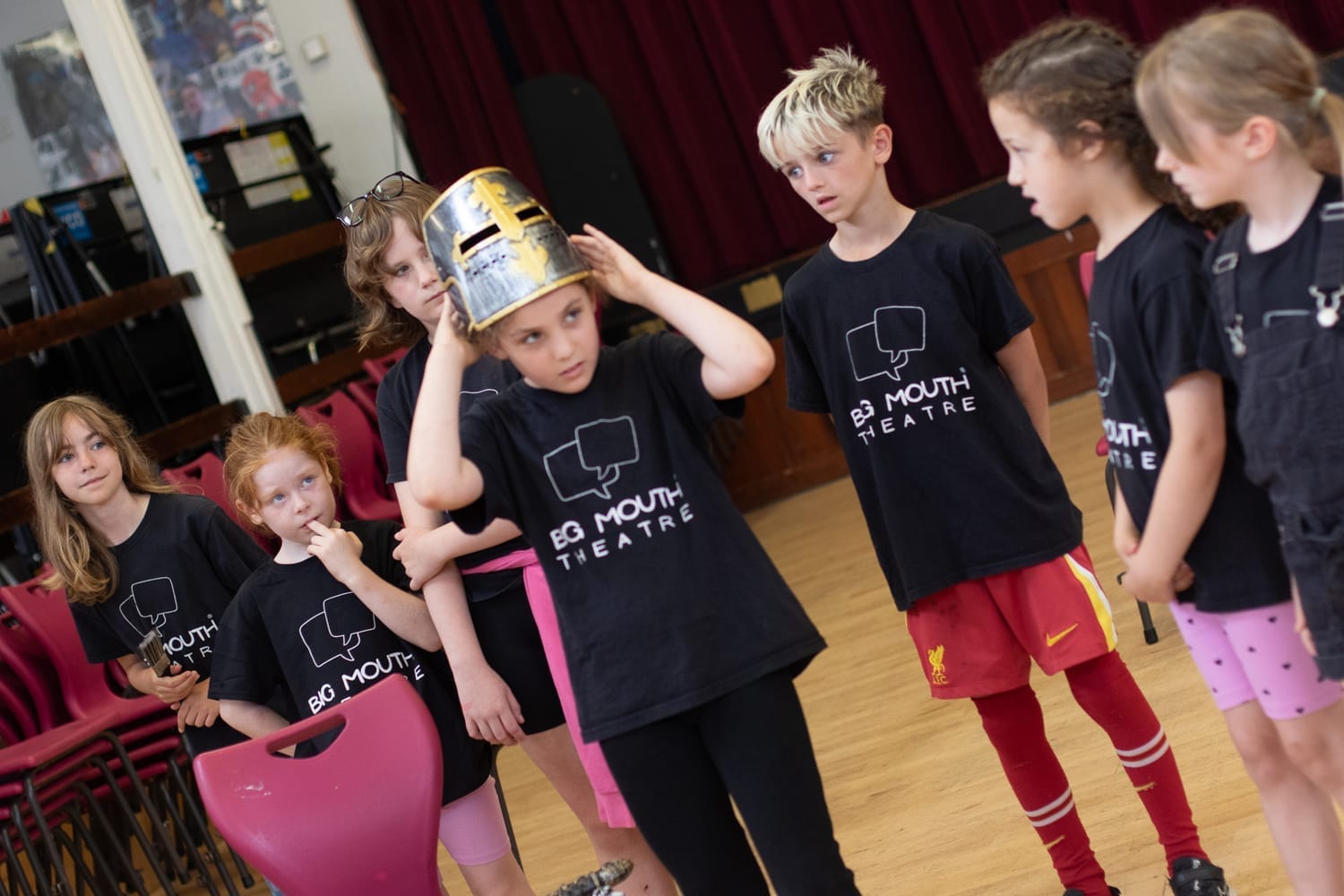
6. Losing at a game can be comparable to the world ending.
When we play games, as we often do to warm up or have a break from rehearsal, some children will be ‘out’, they will lose that particular game and have to no longer join in for a short while. This is the nature of the game, however on occasion this can be considered the worst thing to ever happen. These outbursts, whilst sometimes being slightly amusing, do have a silver lining to them. When a child loses and will say anything to claim foul, or plead their case to continue playing it proves a real sense of focus and engagement. This means they are wanting to play the game, they need to be involved and they will stand up for themselves in order to keep playing. This is quite affirming as it proves the games we play have high levels of engagement and the children want to be involved. If children are actively seeking ways of leaving the game, self-sabotaging their chances of winning, then it is evident this game is not working for them, they are not receiving the levels of enjoyment and fulfilment they should be and that, once again, plans need to change.
7. Always be ready to improvise.
Plans need to change, and often changed plans need to change again. This job and these children keep you on your toes, so you always have to be ready. You can never be complacent and you need to be ready to improvise always. The importance of improvisation cannot be understated, as we use improvisation everyday. It seems unlikely that you have planned out and scripted everything you are going to say on any given day, and thus improvisation is a skill that will always be beneficial and needs to be constantly improved. We play lots of improv games in Big Mouth, because they are great for quick thinking, increase engagement and are really fun. Giving the children the chance to play around with locations and genres, doing a job interview in the style of an opera, or mimes being stuck in a lift lets their creativity run wild while giving them the opportunity to expand their range as an actor. It builds confidence and lets them make mistakes without worrying about messing up their lines or wasting time in rehearsal, and it lets you as a coach see what they are capable of as an individual, as a small group of scene partners and as a whole cast. Preparation and discipline are important, but you won’t be successful without a little improvisation.
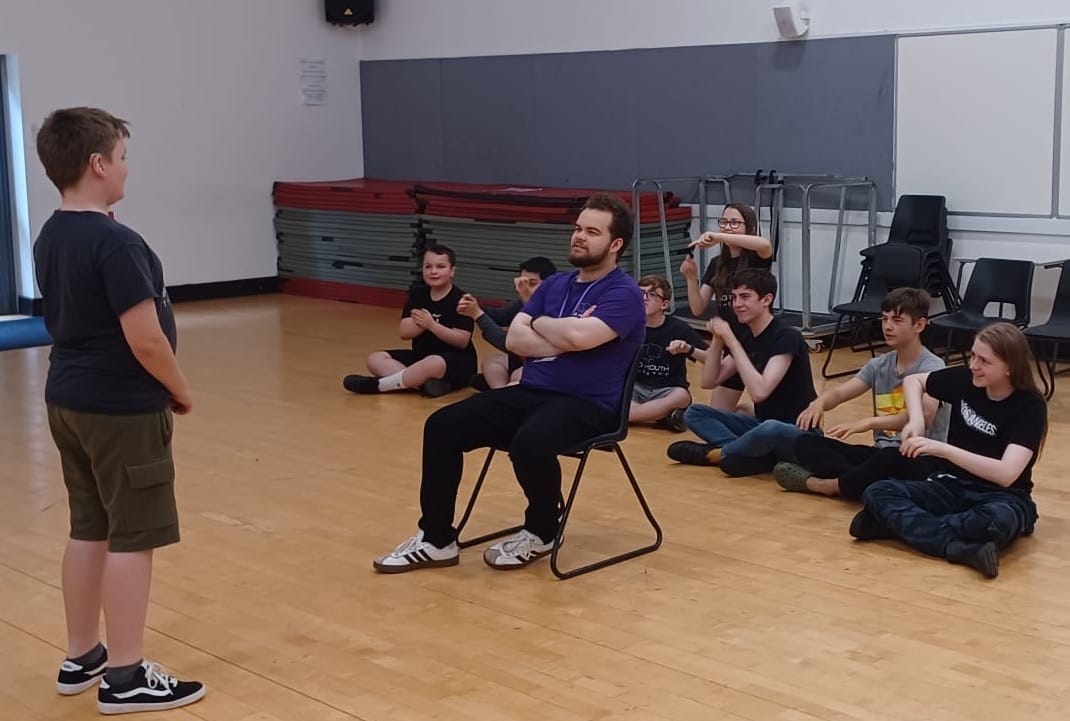
8. Be patient, but never passive.
Creating a show takes time. Creating a show with children takes a bit more time, but that is more time spent working on something everyone can be proud of and have fun making, so that can’t be a bad thing. With this in mind, it is important to be patient. Understand that, when working with an age range of ten years, people will be able to do things, understand things and achieve things at a different pace. But it is important not to just let things happen. In rehearsals, this is something that comes up a lot. Children are at different levels of confidence and reading ability, so scenes can feel very stop and start. There is a style of acting, that is mostly done by child actors, which I see all too often in professional productions and it is really unconvincing. I can’t exactly explain the specifics of what is wrong but I do know the reason. From my formative years as a child actor, playing small roles in film, television and in the West End, I remember how I was directed. I mean directed in quite a literal interpretation of the word. For many of these I was not given a script, never the whole script anyway, and I was told where to stand, where to move, how to move and what to say. I was never told why. I was never given a motivation for my characters to do and say things just that, ‘that’s what the script says. And so I did these things, and I see children in films, television, and yes the West End doing the same. Now I want to be clear, I am not blaming the children, or calling them bad actors. I am blaming the bad direction. Directing children, especially when they are not the main roles is an afterthought that falls by the wayside in the busy schedule of the industry, and this is a shame because these children have talent that is not being utilised. So reflecting on this passivity of professional direction, I make sure I am very active in my directing of the children at Big Mouth. I explain the meaning behind lines, no matter how simple, and discuss the motivation of their character with the actor. This may seem needlessly time consuming but it's vital in order to produce work that the children understand and is creatively fulfilling.
9. You’ll get there in the end.
With patience, passion, respect and discipline, you’ll get there in the end. Some weeks you have set backs. Some weeks you don’t make nearly as much progress as you thought you needed. This can stress you out and the ever approaching deadline can seem evermore daunting. There have been times where the dress rehearsal, the final chance to run the show before the performance, have gone terrible. Tech has failed, cues have been in the wrong order, props have broken and it feels in that moment that the last eighteen weeks have been a waste of everyone's time. You feel you haven’t done your job and you’ve let the company, the parents and most importantly the kids down. Then, the children take a break, you gather yourself and you calmly and respectfully go and speak to them. Listen to their concerns, and motivate them to have a great show. Tell them how proud you are of them and that they should be so proud of themselves. Then... Something amazing happens. They absolutely smash it. They perform the show with more energy, volume and passion than you have ever seen. They make the audience cheer, laugh and cry and when it’s over, you knew it was all going to be fine all along. Every show I have been a part of at Big Mouth, the kids have pulled it out of the bag and wowed everyone in the audience, and everyone backstage, so I really should have learned by now. You’ll get there in the end.
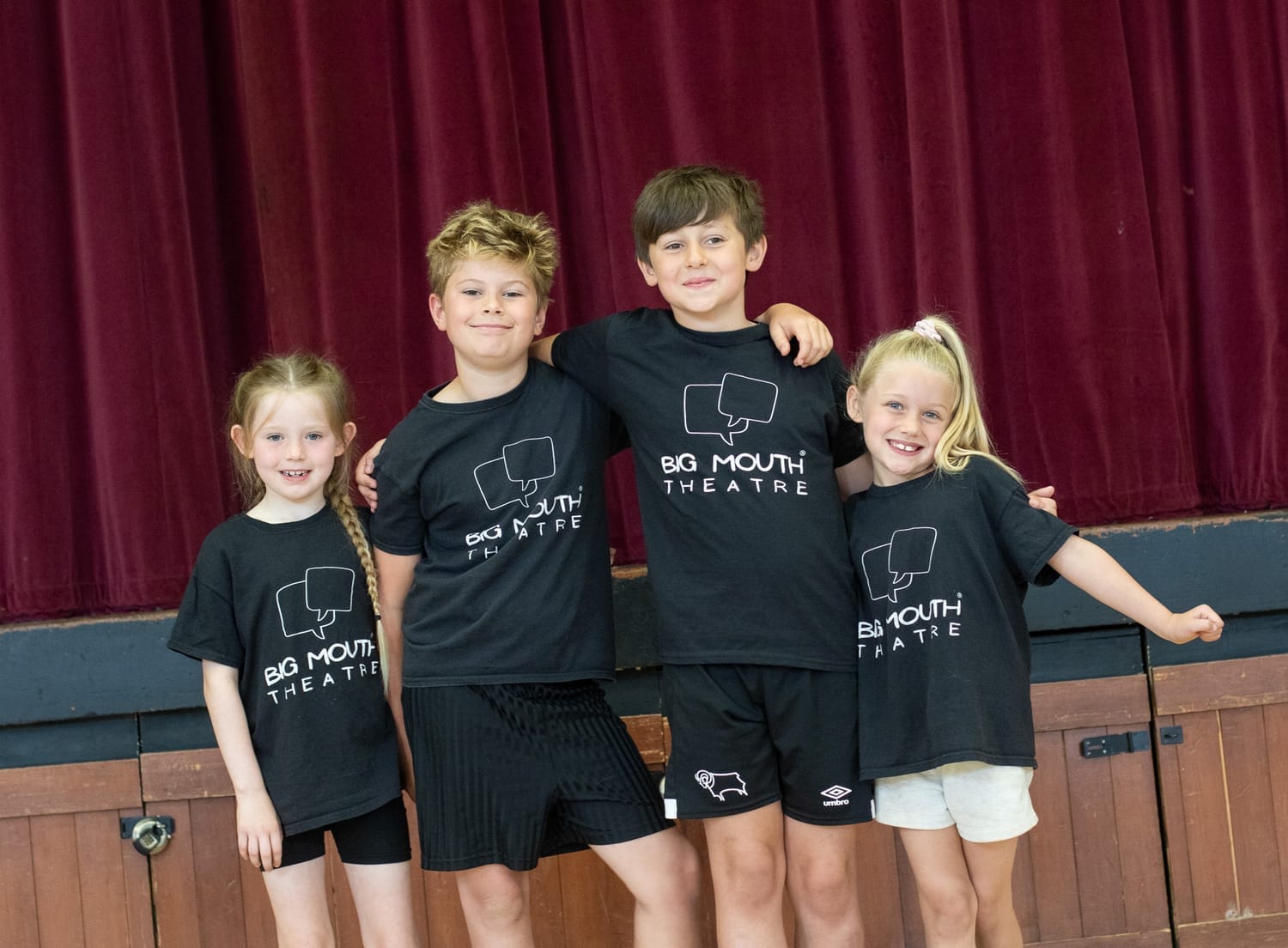
10. Have fun.
Finally, and most importantly. It’s the central ethos of Big Mouth, and it’s the reason we’re all here. No matter what happens remember, this job is amazing, these kids are amazing and no one is a lucky as you, getting to direct a completely original show created by the imaginations of twenty children who learn, grow and build their confidence through the magic of theatre. This is more than a job, so always treat it like that. As I move away to the next chapter of my life, I will remember those children who came into their first taster session not saying a word, standing in the corner, or clinging to their parents. Those same children who, eighteen short weeks later, are standing centre stage, under a spotlight, giving a speech as a character they have created. It is an honour and privilege to play a part in a child finding the confidence to do something amazing. I am so proud of all of the children in Big Mouth and the work we have done together, I hope you enjoyed it.
Are You Interested in our Newsletter?
Find out more about us & see if your child would eventually like to become a
BIG MOUTH!
*We collect and process your personal data in accordance with our Privacy Notice. You can opt out of our marketing at any time.

Designed and created to empower
young people to believe in
themselves and their abilities.
© 2025 Big Mouth Theatre Ltd. All Rights Reserved.








